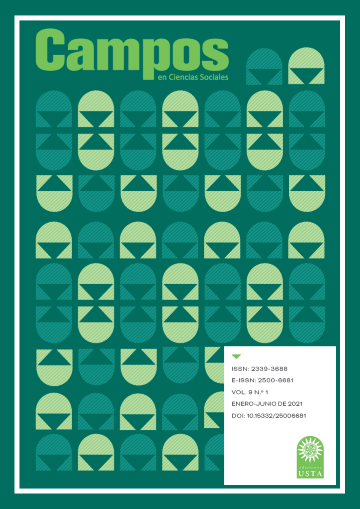Educación e interculturalidad. Desafíos y retos hoy
Current Challenges in Education and Interculturality
Abstract (en)
This article is the result of the Intercultural Polylogue held by the South American Association of Intercultural Philosophy and Theology (ASAFTI), on June 10th, 2020, whose spiral: “Current challenges in Education and Interculturality”, invites us to reflect on these times in which the whole humanity struggles for life, care, and survival in face of social, political, economic, and educational inequalities. To think about education from an intercultural perspective makes it possible to wonder how to combine forces from different fields of thought, practices, and contexts. How to focus on the social fabric, on the history and memory of the peoples, on the traditions, and the stories of the communities to understand that these narratives constitute us as subjects and form us as critical citizens and inhabitants of the world. From this starting point, three reflections are provoked: first, the relationship between pedagogy and education from an intercultural perspective; second, education and interculturality from the contemporary challenges humanity is undergoing; and third, the approach to education in terms of an intercultural relationship from the Mapuche experience.
Abstract (es)
Este texto es resultado del foro realizado por la Asociación Suramericana de Filosofía y Teología Interculturales (Asafti), el 10 de junio del 2020, “Polílogos Interculturales”, cuya espiral, “Educación e Interculturalidad. Desafíos y retos hoy”, invita a reflexionar en estos tiempos en los que la humanidad entera lucha por la vida, por el cuidado y por la supervivencia ante las desigualdades sociales, políticas, económicas y educativas de su contexto. Pensar la educación desde la interculturalidad posibilita preguntarse cómo conjugar las fuerzas desde los diferentes campos de pensamientos, prácticas y contextos. ¿Cómo centrar la mirada en el tejido social, en la historia, en la memoria de los pueblos, en las tradiciones y en los relatos de las comunidades para comprender que estas narrativas nos constituyen como sujetos y nos forman como ciudadanos críticos y habitantes del mundo? Es desde aquí que, para el caso de este documento, se provocan tres reflexiones: la relación pedagogía y educación desde una perspectiva intercultural; la educación y la interculturalidad desde los retos y desafíos contemporáneos a propósito del tránsito en el que vive la humanidad y el abordaje de lo educativo en clave de una relación intercultural desde la experiencia mapuche.
References
Salas, R. (2009). Pensamiento mapuche. En C. Bohorquez, E. Dussel y E. Mendieta (Eds.), Historia del pensamiento filosófico latinoamericano, del Caribe y “latino” (1300-2000) (pp. 41-46). Crefal; Siglo XXI Editores.
Salas, R. y Marileo, A. (2011). Filosofía occidental y filosofía mapuche: iniciando un diálogo. Revista Isees, (9), 119-128. https://dialnet.unirioja.es/servlet/articulo?codigo=3777538
Saldaña, R. y Vélez, C. (2019). Educación e interculturalidad. En J. M. Hernández Díaz, A. Pozzer y E. Cecchetti (Coords.), Migración, interculturalidad y educación: impactos y desafíos (pp. 41-58). Ediciones Universidad de Salamanca.
Saldaña, R., Rubio, J. C., Quintero, M. L. y Rocha de Brito-Rodrigues, L. (2020). Clivajes educativos: expansión, silencios y sujetos políticos. Praxis, 16(2), 215.225. https://doi.org/10.21676/23897856.3262
How to Cite
License
The authors maintain the rights to the articles and are therefore free to share, copy, distribute, execute and publicly communicate the work under the following conditions:
Recognize the credits of the work in the manner specified by the author or licensor (but not in a way that suggests that it has their support or that they support the use of their work).
Campos en ciencias sociales is under a Creative Commons Atribución-NoComercial-CompartirIgual 4.0 Internacional (CC BY-NC-SA 4.0)

Universidad Santo Tomás reserves the patrimonial rights (copyright) of the published works, and favors and allows the reuse of them under the aforementioned license.






